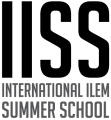Rethinking Arts and Aesthetics in the Muslim World Concepts, Theories, and Practices24 – 30 July 2023The biennial ILEM International Summer School aims to serve as a forum for discussion of major issues concerning the Islamic world by bringing together academics, researchers and artists from diverse backgrounds. The broader theme of the 8th edition of the summer school will be Rethinking Art and Aesthetics in the Islamic World: Concepts, Theories, and Practices. The summer school will explore Islamic arts, which are usually analyzed in connection with the notions of “tradition” or “mystical experience” in contemporary intellectual and artistic circles, from theoretical, conceptual, and socio-political perspectives, and open up for discussion the “axial shifts” or even the absence of axis, observable on both ontological and epistemological planes. The purpose here is to shed light on what is beyond the conditional and prejudiced forms of artistic expression. This can be expressed as an attempt to study the possibility of producing aesthetic formulas as the golden middle to save the beautiful from the vortex of two extreme poles of “acculturation” and “cultural schizophrenia.”This is also an attempt to build an aesthetic bridge between the distant past and the future by considering cultural differences as richness. Indeed, the successful result of this attempt is directly proportional to the level of awareness about the recent past and present. Is the juxtaposition of the terms “Islam” and “art” fully comprehended and theoretically justified? How are the aesthetic values and the understanding of beauty, which are intended to be passed on from the past to the future, reflected in various arts today? From which perspective is the notion of universality addressed, if addressed at all, in the art events that directly or indirectly deal with Islamic aesthetics?To this end, the summer school will be interested in the analysis of relevant issues from three main perspectivesConceptual content: The analysis of the concepts such as “innovation”, “tradition”, “classical”, and “perennial wisdom”, etc. to enrich and clarify the theoretical interpretations of the metaphysical background of Islamic aesthetics.Theoretical discussions: Discussing the current theories on Islamic arts in terms of their origins and content; examining “the Islamic” by considering contemporary issues such as digitalization; exploring the possibility of bringing traditional values and contemporary interpretations of art together on a common ground in line with their aesthetic principles.Socio-political implications: The treatment of Islamic aesthetics from the perspective of social life; discussing whether Islamic arts have any specific mission in the context of the issues of enculturation, cultural diplomacy, propaganda, the problem of environment etc.Click here for program & proposals

















